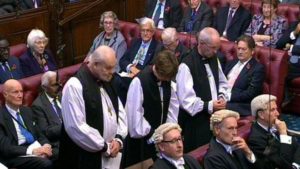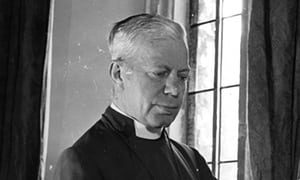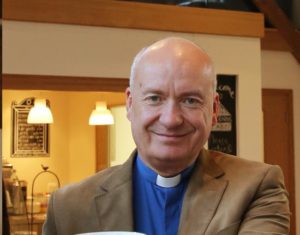 Next week the General Synod of the Church of England meets in London. I happen to be in London on the Saturday so I intend to join the group of survivors who are protesting outside the Synod as members arrive. There will also be present their lawyers and other supporters. This protest is not against the ordinary members of Synod but to draw attention to the ham-fisted way that the leaders of the Church of England have dealt with the survivors’ concerns. As Gilo‘s and the other survivors’ concerns are central to the concerns of this blog I shall of course be reporting on this event for my readers in due course.
Next week the General Synod of the Church of England meets in London. I happen to be in London on the Saturday so I intend to join the group of survivors who are protesting outside the Synod as members arrive. There will also be present their lawyers and other supporters. This protest is not against the ordinary members of Synod but to draw attention to the ham-fisted way that the leaders of the Church of England have dealt with the survivors’ concerns. As Gilo‘s and the other survivors’ concerns are central to the concerns of this blog I shall of course be reporting on this event for my readers in due course.
Meanwhile I have noticed that in the past month my Twitter followers have increased from around 40 to 70. This may be something to do with the fact that I have been blogging much more on topical issues that have come to the fore in recent months. Among my new followers are a small group of lawyers involved with abuse cases. Some of them have represented survivors in cases against the church. Legal issues have recently come to dominate the discussions connected with abuse survivors and it is these that I want to draw attention to in this post. While I am no lawyer, it would seem that serious legal mistakes have been made by Church authorities recently. The consequences of following bad legal advice have been far-reaching.
There is a long piece referenced by Thinking Anglicans by a retired Child Protection expert called Martin Sewell. He sets out how the procedures of the Core Group which originally named Bishop George Bell as a probable paedophile were legally severely flawed. This was also the contention of the very thorough 70 page Carlile Report. Martin Sewell has written his piece after the highly questionable claim by Archbishop Welby that ‘a cloud’ still hangs over the memory of George Bell. It would seem that the original Core Group had only the advice of a solicitor who represents the interests of the Ecclesiastical Insurance Group. This means that her expertise is in indemnity law rather than the more relevant areas of criminal law and the issues around child protection. In short, the Core Group was operating in a way that would best protect the church from possible future litigation. Archbishop Welby’s recent claims have also, according to Sewell, suffered from the same poor legal advice. Not only was the case against Bell weak and uncorroborated but it also failed to protect the rights of the accused. This is an important point of English law that both sides are entitled to confidentiality. Questions that might have established the truth, i.e. corroborating evidence, were not asked. It is the lack of sound legal advice that caused the chaos of the original Core Group findings and latterly the statements by Archbishop Welby.
A further disturbing feature of the Churches’ apparent incompetence in dealing with Safeguarding matters is the content of a confidential document of guidance given to Anglican bishops in 2007. The Daily Telegraph obtained a copy of this in mid-2016. This document instructed bishops, when meeting survivors of sexual abuse, only to use words approved by lawyers, PR advisers and insurers. They were instructed effectively to avoid inadvertently conceding any kind of guilt on behalf of the Church. This official advice might explain why Gilo met a blank from Church authorities right up till last year. The Elliott report which examined his case in particular drew attention to the way that Paul Butler, the Bishop of Durham and i/c Safeguarding, had cut off all contact with Gilo. He was merely following the advice from lawyers and the church insurers. In summary the Church was saying that it is impossible for us to engage with you pastorally or compassionately because our hands are tied by lawyers and insurance companies.
A new advice document was published in 2015 which tried to promote the priority of pastoral response to survivors by Bishops and other senior churchmen. Bishop Sarah Mullally was given the task of putting this new policy into practice. It remains to be seen whether her new responsibilities as Bishop of London will allow her to continue this work. But as an earlier blog has stated, all this blanking of Gilo and failure to respond pastorally to him and other survivors is once again based on a misreading of the law. There is an article in the New Law Journal by Professor Dominic Regan that states quite clearly that an apology to a victim is not equivalent to an admission of liability. His actual word in the article to describe this misunderstanding is ‘tosh’. There is a passage in the Compensation Act of 2006 (a year before the guidance to Bishops!) which makes the following statement. An apology, an offer of treatment or other redress shall not of itself amount to an admission of negligence or breach of statutory duty.
What could be clearer? If the lawyers who helped to draft the guidelines for the Bishops had been half competent they should have known about the Compensation Act of 2006. Here again the Church of England has been let down by poor legal advice which verges, as far as I can see, on the negligent. The Church has lost a great deal in being unable, for these dubious legal reasons, to offer pastoral care for survivors and victims. Even now this principle seems unknown to the regulations of the church. It takes a lonely blogger to point that there is a law that allows the Church to exercise all its resources of pastoral care towards survivors and victims without bankrupting the church. Will somebody in the legal profession who may read this confirm my understanding of Professor Regan’s words? They are too important to remain hidden for ever. The survivors that will gather on February 10 also deserve to know that the Church can support and help them and all the blanking of the past was unjustified and unnecessary. Let us hope that common sense will now prevail. Above all I will repeat the title of this piece. THE CHURCH OF ENGLAND NEEDS BETTER LAWYERS!





